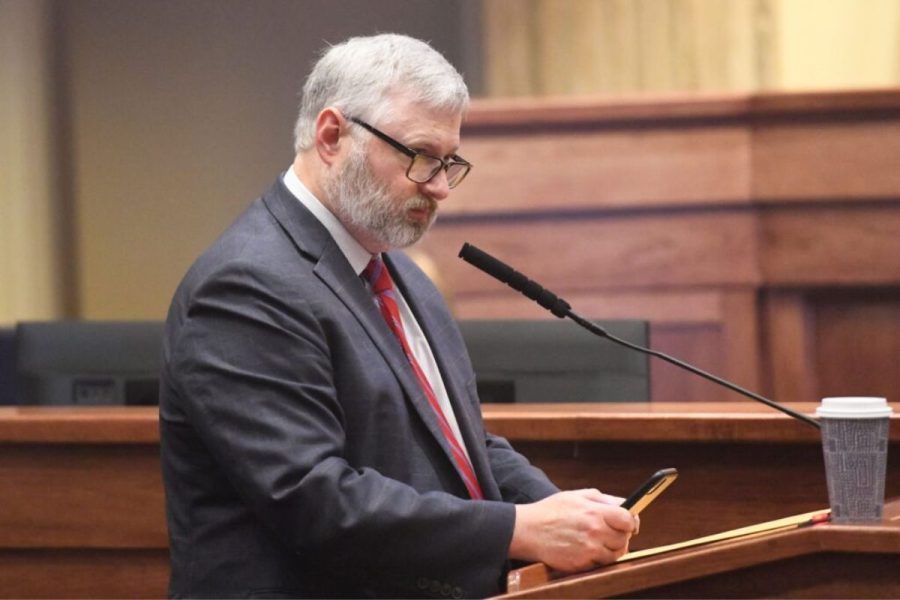Alabama House Approves Bill Limiting DEI: The recent approval of a bill in the Alabama House limiting Diversity, Equity, and Inclusion (DEI) efforts has ignited a fierce debate among lawmakers and the public alike. This legislation, aimed at restricting certain concepts within educational diversity programs, has drawn both support and opposition from various sectors of society.
As the bill progresses through the legislative process, amendments are being proposed, raising questions about the potential impact on education and societal discourse. The implications of this decision could reverberate far beyond Alabama, prompting a broader dialogue on the boundaries of DEI initiatives in the United States.
Alabama House Committee Approves Bill Targeting Diversity Programs in Education
Approved by an Alabama House committee, Senate Bill 129 targets diversity programs in education by seeking to restrict the public funding of diversity, equity, and inclusion initiatives in educational institutions. Sponsored by Sen. Will Barfoot, R-Pike Road, the bill aims to prevent teachers or employees from promoting certain ‘divisive concepts’ related to race, religion, gender, ethnicity, or national origin.
This legislation has sparked a contentious debate, with proponents arguing that it is essential to uphold equal treatment and prevent the dissemination of ideas that could be deemed harmful or polarizing. On the other hand, opponents express apprehensions about the potential ramifications of such restrictions on higher education institutions and the overall educational experience of students.
The bill’s focus on curtailing funding for DEI programs signifies a shift in the approach to addressing diversity issues within the educational landscape of Alabama, prompting discussions on the balance between promoting inclusivity and ensuring ideological neutrality within academic environments.
Divisive Concepts and Restrictions on DEI Programs
In the ongoing debate surrounding divisive concepts and restrictions on DEI programs, Senate Bill 129 in Alabama aims to prevent individuals from being compelled to affirm or adopt certain beliefs based on their characteristics. The bill specifically targets divisive concepts that label individuals as inherently racist, sexist, or oppressive solely due to their inherent traits.
Additionally, SB 129 prohibits agencies from mandating the participation of employees in Diversity, Equity, and Inclusion (DEI) programs. Proponents of the bill argue that it serves to safeguard individuals from being coerced into accepting ideological beliefs within DEI initiatives. However, critics express concerns that such restrictions could impede efforts to promote diversity and inclusion, potentially leading to negative consequences for the overall student experience.
The tension between protecting individual autonomy and fostering diverse and inclusive environments underscores the complexities surrounding the implementation of DEI programs within institutional settings.

Support and Opposition to the Legislation
Amid the ongoing discourse surrounding Senate Bill 129 in Alabama, divergent perspectives emerge regarding the legislation’s impact on Diversity, Equity, and Inclusion (DEI) initiatives. Support for the bill primarily stems from conservative organizations, which argue that DEI programs have been co-opted to subvert public institutions.
On the other hand, critics, including students and medical professionals, contend that DEI is crucial for fostering inclusive communities and upholding sound business practices. They express apprehension over the potential adverse effects on employment opportunities, especially for students, and the potential harm to Alabama’s reputation at a national level.
The supporters of the bill emphasize the need to address what they perceive as the misuse of DEI initiatives, while opponents stress the importance of DEI in cultivating diverse and equitable environments. This sharp divide in perspectives underscores the complexity of the issue and the challenges in finding common ground to advance DEI efforts while addressing concerns about the bill’s implications.
Legislative Process and Amendments
Proceeding through the legislative process, Senate Bill 129 in Alabama underwent amendments defining contractor violations and stipulating that violations must be intentional following a successful passage through the House State Government Committee. The amendments were introduced during an hour-long public hearing, where concerns were raised by Democrats regarding potential repercussions on Historically Black Colleges or Universities (HBCUs). Despite these concerns, attempts to amend the bill were ultimately unsuccessful. The bill, which limits Diversity, Equity, and Inclusion (DEI) initiatives, now moves forward to the full House of Representatives for additional deliberation and discussion.
The amendments to Senate Bill 129 mark a pivotal moment in the legislative journey of the proposed legislation. By specifying the nature of contractor violations and emphasizing the requirement for intentionality, the bill’s scope and implications become clearer. As the bill progresses through the legislative process, stakeholders and lawmakers will continue to scrutinize its language and potential impact, ensuring a thorough examination of its provisions before any final decisions are made.

ALSO READ: Sewell’s Bold Move: 8th Term Quest in Alabama’s 7th District
News in Brief
Alabama House committee greenlights Senate Bill 129, focusing on limiting Diversity, Equity, and Inclusion (DEI) efforts in education. Sponsored by Sen. Will Barfoot, the bill aims to curb public funding for DEI initiatives, sparking a heated debate. Proponents argue for ideological neutrality, fearing potential harm, while critics express concerns about restricting DEI programs in higher education.
Senate Bill 129 specifically targets divisive concepts within DEI, prohibiting compelled affirmation of certain beliefs based on individual traits. Divergent views arise, with conservatives supporting the bill to address perceived misuse of DEI, while opponents stress its importance in fostering inclusive communities. The bill undergoes amendments, specifying contractor violations and emphasizing intentionality, advancing to the full House for further consideration.

